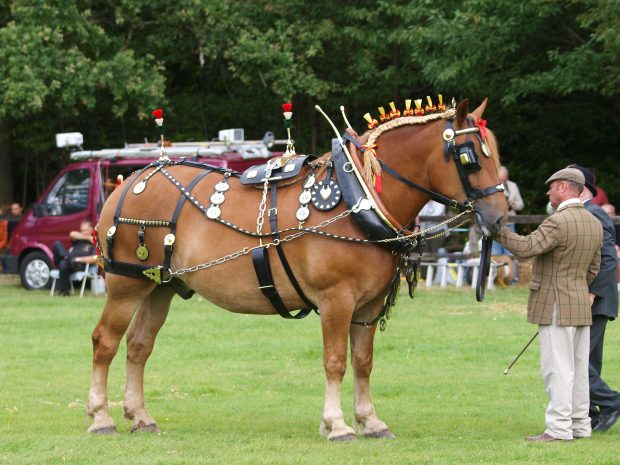The largest stud of Suffolk Punch horses in the UK is to be taken over by a trust set up for the purpose of securing the future of the rare breed.
The Colony Stud at Hollesley Bay near Woodbridge has been in existence for more than 100 years. It was originally an agricultural college where the younger sons of the gentry were trained how to farm in the colonies, hence its name, but the estate became an open prison in 1938, and the Prison Service took over the farm.
The stud developed into the largest Suffolk Punch breeding establishment in the UK, largely due to the work and support of the Home Office and HM Prison Service (HMPS).
For a variety of reasons, HMPS now feel that it is in the best interests of prisoners to sell the farm, but as Philip Ryder-Davies, chairman of the Suffolk Punch Trust explains, “HMPS has been very responsible about what it is doing. They recognise that the stud is of great value, and they are doing their utmost to co-operate with us.
“Initially, we will take over the farm on a renting basis in September of this year, but the prisoners will go on working in the stud even when we eventually purchase the farm,” he added.
The Suffolk Punch Trust was set up two years ago to take over ownership of the stud, which has played a crucial role in perpetuating the breed. The breed has the longest written pedigree of any livestock, and can be traced back to a single stallion foaled in 1768, but it is said that only 300 Suffolk Punches exist, making it more rare than the Giant Panda.
“The issue is not how many of the breed exist, but how many breeding stock exist. And at the moment, there are only 70 breeding mares, and nominally 25 stallions, but that is very much a case of nominally as they may not be standing at stud,” says Philip Ryder-Davies.
Had the Suffolk Punch Trust not come into existence, the land and farm would have been sold, and the horses would have been sold separately. However, one of the greatest advantages of conserving the Colony Stud is that it has the facilities for three stallions, and also has its own, professional stud groom, meaning that the breeding efficiency is very high.
The trust registered as an environmental body, entitling it to a £100,000 grant from Waste Recycling Environmental Ltd (WREN), which enabled them to give a contract to architects to apply for planning permission.
The whole project, including buying the land and horses, and developing the land to fulfil the main aims of the trust, which are educational as well as breeding-based, is expected to cost up to £2 ½ million. The trust is far short of this goal, but it has made a major Lottery bid, amongst other fundraising efforts, and hopes to have bought the stud and have it up and running as an educational centre by 2007.
Michael Wood, governor of Hollesley Bay prison said: “I am pleased that the Trust is seeking to secure the long term future of these horses at Hollesley and that training and employment opportunities will be available for prisoners and will be linked to their resettlement needs.”
For more information, e-mail suffolkpunchtrust@wren.org.uk, or tel: 01953 714123.




